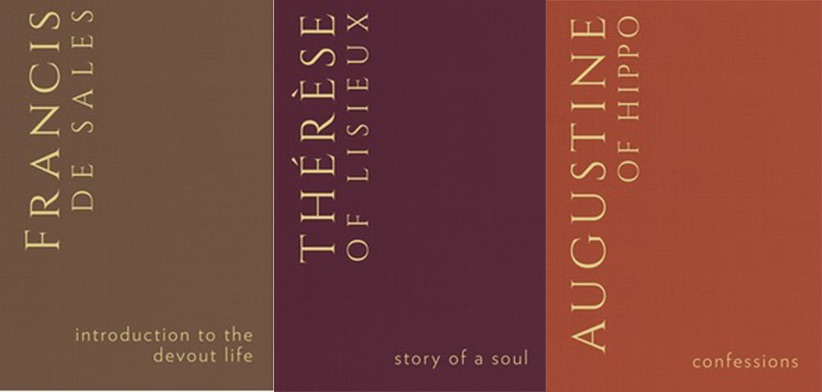The vast panoply of spiritual writings from the saints and other holy persons can be overwhelming and intimidating. There are just so many priceless works! That makes it hard to direct someone to a text without knowing more specifics. Additionally, I can only address or recommend those I’ve read or have some familiarity with. All that being said, I would recommend the following three spiritual classics without hesitation:
“Introduction to the Devout Life”: St. Francis de Sales addresses Christians living in any state of life who want to grow in a personal relationship with Christ. He reminds readers that God made all of us with intentionality, and our goal should be to fulfill that. As he wrote, “Be who you are and be that well.” The book is composed in five parts, each relating to a particular stage on a person’s Christian journey, the third of which — on the practice of virtue — is most helpful in anyone’s life.
“Story of a Soul”: The autobiography of St. Thérèse of Lisieux chronicles the saint’s short life that, not unlike many, was filled with much suffering. In the book, the saint posits her “Little Way” — a spiritual path to serve God in one’s littleness and simplicity. The “Little Way” doesn’t require us to do great things or offer great sacrifices, but to be faithful in all the ordinary and daily circumstances of life — embracing it all as a gift from God. St. Thérèse sums up her spiritual plan well: “I know well that it is not my great desires that please God in my little soul, what He likes to see is the way I love my littleness and my poverty; it is my blind hope in His mercy, this is my only treasure…. The weaker one is, without desires or virtues the more ready one is for the operations of this consuming and transforming love…. God rejoices more in what He can do in a soul humbly resigned to its poverty than in the creation of millions of suns and the vast stretch of the heavens.”
“Confessions”: St. Augustine’s Confessions is a partial autobiography chronicling his own conversion and the regrets associated with his formerly sinful life. The last portions of the book are a commentary on a variety of theological and philosophical ideas. Especially moving in the text are St. Augustine’s reflections on the Faith and his own memories of his relationship with his mother who, in fact, brought him to the Faith. Confessions is one of the most profound conversion stories in history, one to help all Christian grown in their own relationship with God. In this work we find the famous line that sums up St. Augustine’s primary discovery in his spiritual journey, and perhaps experienced in many of ours: “For Thou hast made us for Thyself and our hearts are restless till they rest in Thee.”

These and other spiritual classics are available from Our Sunday Visitor’s Noll Library Classics.
Michael R. Heinlein is editor of Simply Catholic. Follow him on Twitter @HeinleinMichael.

